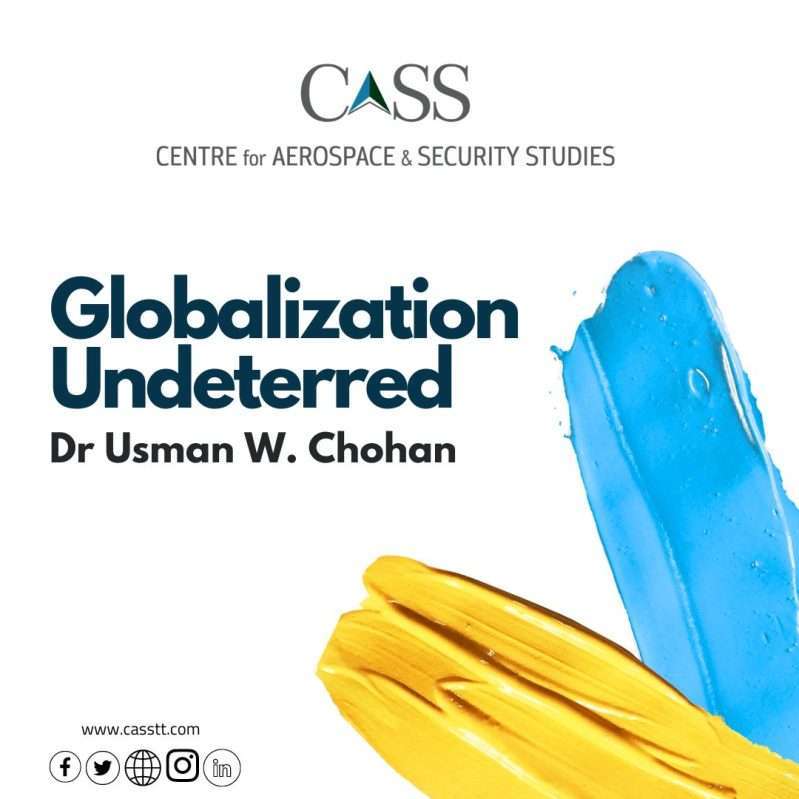For all the pundits who have been heralding a firm and decisive “retreat” of globalisation in the past few years, there is now a stunning counterexample of resurgent globalisation in the world. In the midst of global economic gridlock and a public health catastrophe, a large group of Asian-Pacific countries have just signed the largest free trade agreement (FTA) in history. Known as the Regional Comprehensive Economic Partnership (RCEP), this landmark agreement includes 10 ASEAN countries, China, Japan, South Korea, New Zealand, and Australia. Together, these countries account for 30 percent of global GDP and represent an aggregate population of more than two billion people.
The RCEP was first proposed in 2012, and eight years of negotiations culminated in an agreement at the most recent Southeast Asian summit (conducted mostly virtually). It was pushed in large part by the understanding among this large group of countries that their pandemic-hit societies require economic resuscitation through increased trade. Chinese Premier Li Keqiang hailed the agreement and noted that “under the current global circumstances, the fact that the RCEP has been signed […] brings a ray of light and hope amidst the clouds.”
As a sustained champion of globalisation, China is seen to be a significant beneficiary of this agreement. Indeed, China has been a much stauncher proponent of the globalization movement since the now-deposed President Trump launched a vociferous “America First” campaign in 2015-16. In the past five years, China has pushed for greater international economic integration, leading the charge through the One Belt One Road (OBOR) megaproject, of which the China-Pakistan Economic Corridor remains a linchpin. The RCEP is in many ways a complementary treaty to the ambitions that underlie OBOR, and it offers significant trade ease for countries that are closely tied to OBOR, even if they are not signatories to RCEP (such as Pakistan).
China has also urged for a repudiation of the nationalist mercantilism that the Trump-era proclaimed. The US was keenly involved in a counter-proposal to the RCEP during the Obama years, known as the Trans-Pacific Partnership (TPP), which was seen as an economic arrangement tilted somewhat against China. However, the US withdrawal from the TPP during the Trump regime created an opportune vacuum for China to pursue the RCEP through to completion.
The strengths of the RCEP are that it allows for lower tariffs, standardised requirements, and the opening of the service-sectors among these economies. As services continue to grow as a proportion of economic output, facilitating exchange among service-sectors allows for greater integration and newer market opportunities. The standardisation of requirements is also a business-friendly policy in that large and small companies in the region can more easily meet commercial requirements for a large number of major markets simultaneously. The RCEP also offers a stimulus to several regional economies that began to see stagnation due to the pandemic, such as Indonesia (first recession in two decades), and the Philippines (recent quarter decline of -11 percent year-on-year). Other ASEAN countries too have been feeling the brunt of the pandemic.
Meanwhile, India could have benefitted from the RCEP, but it withdrew last year due to concerns about Chinese goods flooding its markets. This concern is legitimate and should be mulled by other signatories as well: Many countries that have entered into FTAs with China (including Pakistan) have seen their trade deficits widen since. Perhaps trade facilitation and an economic stimulus are greater concerns for economic managers of RCEP signatories at the moment, but too great a deficit over too prolonged a period may nudge successor leaders to question deals such as the RCEP, much as Trump did in 2016. In addition, although the RCEP does cover elements such as intellectual property, it does not adequately touch upon larger issues such as labour rights and environmental protection measures. Countries looking for quick boosts to trade should not overlook such larger and longer-run considerations.
For Pakistan, even if it isn’t a signatory to the RCEP, its companies can and should seize the trade facilitation allowed by the treaty through subsidiaries in one or more of the member countries. Pakistan should also encourage RCEP members, especially China, to veer towards integrating the benefits of CPEC into the RCEP. This can be done in several ways, including identifying service-sectors that would be appropriate for indirect participation in the RCEP, as well as the accelerated development of Gwadar and other infrastructure to complement the western rim of the RCEP member countries in terms of the movement of goods.
For an incoming Biden administration, the success of the RCEP should serve as a warning about how much the US has allowed itself to slip backwards in terms of setting the geopolitical rules and the geo-economic agenda in the Asia-Pacific region. Much as it obsesses about its security interests and the rag-tag “Quad” arrangement it has spun in the region, the US has turned its back on globalisation under Trump. This leaves Biden with much catching up to do, since two of the Quad’s members (Japan and Australia) are members of the RCEP and will face a stark contradiction between security interests (in the US camp) and economic interests (which are multilateral). In that way, globalisation allows China to offer a counterproposal to security containment efforts by the US, and generates a useful form of deterrent steeped in the market logic.
RCEP is thus a clear manifestation of converting economic integration into a useful security deterrent. Insofar as China has held up globalisation’s mantle, contrary to Trump’s claims, globalisation itself remains a force undeterred.
Dr. Usman Chohan is Director at Centre for Aerospace and Security Studies (CASS). This article was first publsihed in The Nation newspaper. The author can be reached at cass.thinkers@gmail.com.





